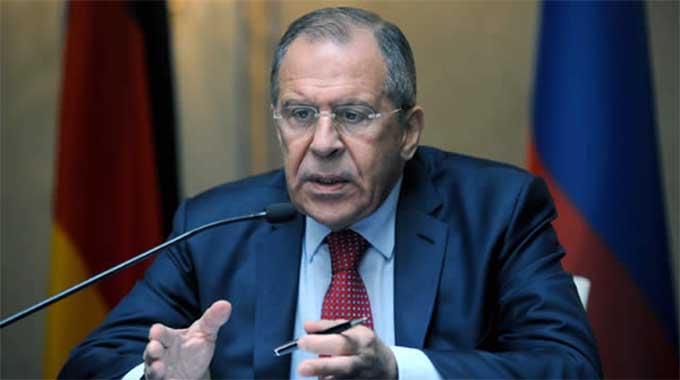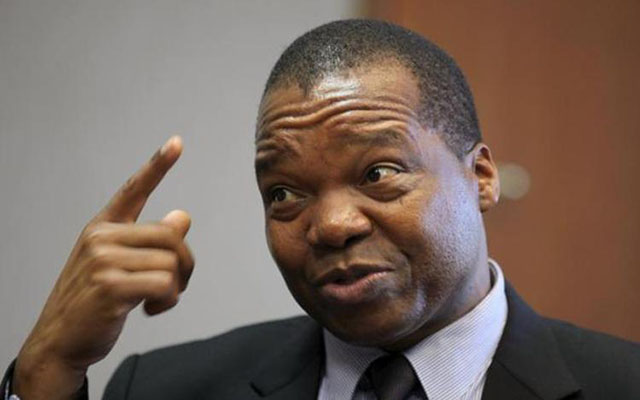Zimbabwe, Russia have come from far

Isdore Guvamombe Assistant Editor
Without necessarily going back to Zimbabwe’s war of liberation from British colonialism, Zimbabwe and Russia have developed and continue to develop strong economic and political ties. After the end of the white regime in 1980, Zimbabwe strengthened its relations with Moscow despite pressure from Western Europe, who wanted to maintain hegemony over Zimbabwe’s vast untapped natural resources
The then Union of Soviet Socialist Republics, as Russia was known, soon established diplomatic relations with Harare on February 18, 1981 and Russia still maintains an active embassy here.
The climax of it all was during Zimbabwe’s international political hiatus, when on July 12, 2008, Russia and China proved that their political and economic ties with Zimbabwe were real by vetoing a UN resolution to impose sanctions on Zimbabwe which was sponsored by both the US and the UK.
Without Russia and China, Zimbabwe’s enemies would have manipulated the United Nations Security Council and abused Zimbabwe willy-nilly and also effected regime change. This was a major turning point in Zimbabwe’s politics and its international standing. To date, Zimbabwe remains grateful to Russia for standing with it through hard times.
As if that was not enough, Russia followed the veto with a huge consignment of food a few months later as Zimbabwe reeled under illegal Western sanctions that put national food security under threat. Several other goodwill overtures followed.
On 16 September 2014, Zimbabwe and Russia witnessed the signing of several deals that culminated in the Darwendale Platinum mining project some 70km west of Harare.
It was a befitting signature and legacy project, since Darwendale has one of the world’s largest platinum deposits. Around 10 million tonnes can be mined and processed annually, and there is potential to produce 25 tonnes of platinum group metals per year. The Great Dyke Investments (Pvt) (Ltd) — a Russo-Zimbabwe joint venture —made the findings after eight months of exploration and US$50 million of investments that have created some 100 jobs and will create close to 5 000 more on project completion.
Only yesterday, Russian Foreign Minister Mr Sergey Lavrov arrived in the country, for the first time after the country went through political change in November last year, courtesy of the Zimbabwe Defence Forces intervention. The visit is no doubt an endorsement of the new political dispensation in Zimbabwe that has set its eyes on making Zimbabwe great.
The visit is also set to give momentum to the Darwendale Platinum Mining project, which is a huge game changer.
Outside this, economic relations between Zimbabwe and Russia are poised for strong growth since the two countries agreed to set up a forum to facilitate and promote trade and investments. With full support of both governments, the Zimbabwe-Russia Business Forum, a private sector driven initiative, will create a platform for business linkages between local and Russian companies. The Confederation of Zimbabwe Industries, which is representing other local business organisations is happy with the developments.
Russia is not a novice in technology and Zimbabwe should leverage its relationship with Russia for an all-encompassing economic turnaround.
Russia is a producer of very strong equipment in the industrial and military spheres. In fact, in all spheres. Russian products are durable and competitive.
Zimbabwe needs to work with Russia in mechinaisation of the agriculture sector, in reviving industries and indeed in the mining sector. Suffice to say Zimbabwe has a buffet of untapped mineral resources and hence should not restrict itself to platinum mining.
There is a potpourri of other minerals that need to be mined and that also require value addition. Russia is good at that and it is high time Zimbabwe took advantage of its good relations with Russia to do value addition.
While a new Zimbabwe is open for business to everyone, President Mnagangwa made it clear that he will not ignore the country’s old friends; all-weather friends, for that matter.
Those old enough to know the military sabotage done on Zimbabwe in terms of British military aircraft spare parts during the Democratic Republic of Congo sadc military intervention, will know how pretty dangerous it became when the British starved Zimbabwe of military hardware spare parts, hence Zimbabwe needs to diversify its military inventory to include Russian weaponry.
In short, Zimbabwe should have a broader cooperation with Russia that encompasses all spheres.
A brief investigation into Russian dealings elsewhere in Africa shows that Russia pursues a pragmatic policy aimed at enhancing multi-dimensional ties with the countries of the continent on a bilateral and multilateral basis.
Russia has a huge pool of researchers who offer theoretically rationale and practical innovative solutions for the federation to overcome any crisis, which could give significant positive results in the short term. Zimbabwe needs such effective and breakthrough solutions. Zimbabwe needs solutions that are compact, comprehensible and relevant to our capabilities, especially economic recovery in all sectors, for products which have been shut out by Western markets, as well as the supply of agricultural inputs and mechanisation.
In recent years, Russia’s relations with Africa have hit new levels and Zimbabwe cannot be left out. Russian relations developed with leading regional associations, including the African Union.
Russia regularly takes part as guest and an active participant in discussions, including on the sidelines of international summits and conferences, and in many African capitals. It is also involved in relations with African countries and regional associations in the field of security and counter-terrorism.
For Zimbabwe, it is critical to know that Russian is known the world over for leading in the exploration, mining (bauxite, gold, and copper, and cobalt, and diamonds, and many more).
In the future, we see the participation of more Russian companies in our country. Russia has also shown interest in major oil and gas mining ventures.
Of critical importance is for Zimbabwe to take advantage of the Foreign Minister’s visit and work on the improvement of the legal framework. Also, we cannot deny the insufficient knowledge of the Russian businesses of Zimbabwe, the requirements, and other parameters and this is time to create common understanding between the two countries so that more investment and trade flows both ways.
Many Zimbabwean businesspeople are poorly informed about the possibilities of Russian partnerships and yet there are huge business opportunities.
Russian technology can be successfully promoted in Zimbabwe.
That the two countries have set up the Russia-Zimbabwe Joint Commission, which focuses on possible areas of economic cooperation, is laudable. But more can still be done to make it effective for the benefit of the two countries. More business opportunities beckon as the two countries scale new heights in their relationship.









Comments